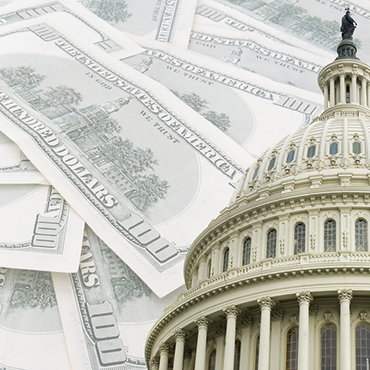Congress passes $1.1T spending bill
Congress passed the omnibus appropriations bill on Dec. 18, funding the federal government through fiscal year 2016 and averting a possible shutdown.

Congress headed off a possible government shutdown on Dec. 18 with the passage of a $1.14 trillion spending bill. The measure funds the federal government through the end of fiscal year 2016.
The Senate voted 65-33 to pass the measure, sending the omnibus package off to the president's desk for his signature. The House had passed the bill on a 316-113 vote earlier the same day.
House Speaker Paul Ryan (R-Wis.) touted the bill's broader policy provisions, like "the repeal of the outdated, anti-growth ban on oil exports," and said it "strengthens our military and protects Americans from terrorist threats, while limiting the overreach of intrusive government bureaucracies like the IRS and the EPA." But there were plenty of notable changes for the federal IT community as well.
The package includes the Cybersecurity Act of 2015 and the fiscal 2016 Intelligence Authorization Act. CISA encourages private firms to share more cyber threat data with law enforcement. It includes provisions to improve Federal network and information system security, among others.
Around $41 billion in discretionary funding will be provided to the Department of Homeland Security through this bill, for counterterrorism activities, and increasing transparency and accountability within the department.
"I am pleased to have DHS as the sole portal for companies to voluntarily share information with the federal government while expressly prohibiting the military and NSA from hosting a portal," House Homeland Security Committee Chairman Michael McCaul (R-Texas) said. "In light of the OPM breach, this legislation ensures federal cyber networks are able to defend against nation-states like China, Russia, Iran, and North Korea and terrorist threats."
Leaders on the House Intelligence Committee also praised the final cyber legislation.
"The American people overwhelmingly agree that we need to improve our defenses against cyber attacks and to keep our Intelligence Community fully funded to track and neutralize terrorists," House Permanent Select Committee on Intelligence Chairman Devin Nunes said in a statement. "That consensus is reflected in the big, bipartisan majorities that approved these bills in Congress."
Rep. Adam Schiff (D-Calif.), the ranking member of that committee, said the IAA gives the intelligence community what they need to protect the country. He noted that CISA has the strongest privacy provisions to date.
"With this bill, we are crowdsourcing security so that information about a threat found on one system can be quickly shared -- and other companies, agencies and consumers can be protected from a similar attack," Schiff said. "At the same time, this bill protects privacy by requiring the removal of any personal information unrelated to the cyber threat prior to sharing and by requiring that it only enter the government through a civilian agency."
Other IT measures in the omnibus bill include an exemption from new federal IT acquisition rules and CIO authorities for the Department of Energy's National Labs.





